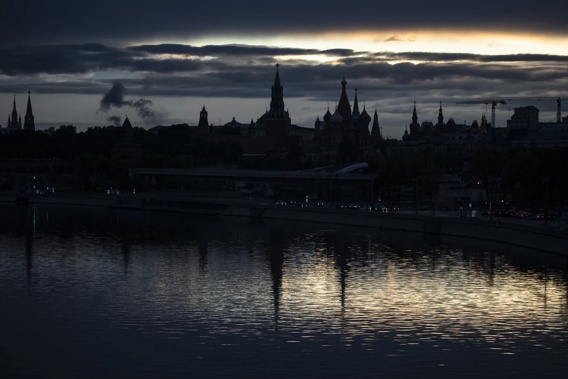
Russia’s 2024 presidential election isn’t expected to bring change to the Kremlin.
With most opposition figures either in jail or abroad and many independent media outlets blocked, the Kremlin maintains tight control over the country’s political system. March’s vote is all but guaranteed to see President Vladimir Putin, 71, cement his place in power until at least 2030.
Nonetheless, the election is set to be closely watched by those looking for insight into Russia’s political machinations, as well as opinions across wider Russian society just over two years since Moscow launched its full-scale invasion of Ukraine.
Here’s what you need to know about the upcoming election, how voting works, who is challenging Putin and what this means for the global political stage.
Who can vote in Russia’s 2024 presidential election?
Any Russian citizen over the age of 18 who is not serving time in prison can vote in the country’s presidential election. In February 2024, Russia’s central election committee said that some 112.3 million people were eligible to vote in Russia and Russian-occupied areas of Ukraine. A further 1.9 million Russians living abroad are also eligible to vote, it said.
Turnout in Russia’s last presidential election in 2018 stood at 67.54% though observers and individual voters reported widespread violations including ballot-box stuffing and forced voting. In the country’s 2021 parliamentary, election turnout was 51.7%.
How does voting work in Russia’s 2024 presidential election?
Voting in Russia will largely be carried out at polling stations over three days between March 15-17. It is the first presidential election in Russia when polls will be open for three days instead of one.
Russian officials first employed multiple-day voting in the 2020 referendum Putin orchestrated to push a constitutional reform that would allow him to run for two more terms. However, this will be the first time that multi-day voting will be used in a presidential vote.
It will also be the first presidential election in which voters can cast ballots online, with e-voting rolled out across 29 Russian regions.
Independent election observers widely criticized stretching the vote for several days and allowing online voting, saying they were tactics to further hinder the transparency of the balloting process. Opposition groups in 2021 said digital votes in the country’s parliamentary elections showed signs of manipulation.
- Ukrainian troops pull back after Russia onslaught
- 31,000 Ukrainian troops killed since the start of Russia's full-scale invasion, Zelenskyy says
The vote will also take place in the occupied regions of Ukraine – a decision that Kyiv and the West have denounced.
Who is running in the Russia’s 2024 presidential election?
Russian President Vladimir Putin will be running in the election as an independent candidate. He is all but certain to secure his fifth term while facing a trio of token contenders.
The other candidates nominated by Kremlin-friendly parties represented in parliament are Nikolai Kharitonov of the Communist Party, Leonid Slutsky of the nationalist Liberal Democratic Party, and Vladislav Davankov of the New People Party. Kharitonov previously ran against Putin in 2004, finishing a distant second.
They broadly support the Kremlin and its policies, including the invasion of Ukraine. Previous elections have shown such candidates are unlikely to get enough votes to mount a real challenge to Putin. In the 2018 presidential vote, the Communist party runner-up secured 11.8% of the vote, compared to Putin’s 76.7%.
Meanwhile, most of the opposition figures who might have challenged Putin have been either imprisoned or exiled abroad. Last week, Russia’s best-known opposition leader Alexei Navalny, whose attempt to run against Putin in 2018 was rejected, suddenly died in prison while serving a 19-year sentence on extremism charges.
What are the big issues at stake in Russia’s 2024 presidential election?
Many commentators, as well as Russia’s largely scattered opposition, describe the election as a plebiscite on the war in Ukraine that Putin launched two years ago.
Shortly before his unexpected and still unexplained death, Navalny called on voters to go to the polls at noon on March 17 and form long lines to show the world their discontent with the idea of extending Putin’s quarter-century rule by six more years.
“Putin views these elections as a referendum on approval of his actions. Referendum on approval of the war,” Navalny said in a statement passed on from behind bars, shortly before his death. “Let’s break his plans and make sure that on March 17 no one is interested in the fake result, but all of Russia saw and understood: the will of the majority is that Putin must leave.”
Will Russia’s 2024 presidential election be free and fair?
Observers who follow Russia’s 2024 presidential election have little hope the vote will be free and fair. Activists reported practices such as forced voting during the country’s 2021 parliamentary election, with videos on social media showing ballots being stuffed into voting boxes.
During the country’s last presidential election in 2018, an International Election Observation Mission from the Organization for Security and Co-operation in Europe (OSCE) described the vote as lacking genuine competition, and marred by “continued pressure on critical voices.”
In the years that followed, the country’s parliament has introduced increasingly oppressive legislation clamping down on free speech. The vast majority of independent Russian media outlets have been banned and anyone found guilty of spreading what the government deems to be “deliberately false information” about the country’s invasion of Ukraine can be imprisoned for up to 15 years.
Take your Radio, Podcasts and Music with you









